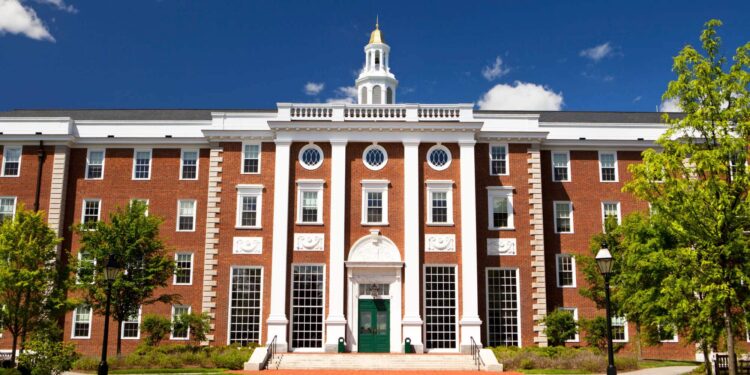Harvard University, the world’s wealthiest academic institution, has launched a bold legal challenge against the Trump administration, accusing it of unlawfully freezing billions in federal funding. The lawsuit, filed in a Massachusetts federal court on 21 April 2025, marks a significant escalation in the ongoing clash between the Ivy League giant and the White House, which has sought to impose sweeping demands on the university’s operations. At stake is over £1.7 billion in research grants, critical to Harvard’s groundbreaking work in medicine, science, and technology.
The conflict stems from the administration’s claim that Harvard has failed to address antisemitism on campus, particularly following pro-Palestinian protests in 2024. In response, the White House issued a list of demands, including auditing faculty for plagiarism, reporting international students for misconduct, and appointing an external overseer to ensure “viewpoint diversity” in academic departments. Harvard’s president, Alan Garber, rejected these conditions, arguing they infringe on the university’s autonomy and constitutional rights. Within hours, the administration froze £1.7 billion in grants, with threats to cut an additional £780 million and revoke Harvard’s tax-exempt status.
Harvard’s lawsuit contends that the funding freeze violates the First Amendment and bypasses legal procedures. It argues that the administration’s actions lack a rational connection to combating antisemitism, as the frozen funds support research into cancer, infectious diseases, and battlefield injuries—areas unrelated to campus protests. Garber, who is Jewish, acknowledged concerns about antisemitism but insisted the university has taken steps to address it, including establishing task forces. He described the administration’s demands as an attempt to control “whom we hire and what we teach,” undermining academic freedom.
The legal battle has galvanised support across academia. Over 200 university leaders, including those from Princeton and Columbia, issued a joint statement condemning the administration’s actions as political interference. Harvard’s faculty, alongside the American Association of University Professors, had already filed a separate lawsuit, calling the funding review an “existential gun to the head.” Protests have erupted nationwide, with thousands of academics rallying against what they see as an assault on higher education.
The administration, however, remains unyielding. White House spokesperson Harrison Fields declared that the “gravy train of federal assistance” to elite institutions like Harvard is over, accusing them of enriching bureaucrats with taxpayer funds. The administration has also targeted other universities, freezing funds at Columbia, Cornell, and Brown, though Harvard’s defiance has made it a focal point. Legal experts suggest Harvard’s case is strong, citing violations of due process and the Civil Rights Act, but warn that a prolonged fight could disrupt research and harm students.
This clash is not just about funding; it’s a broader struggle over the independence of American universities. Harvard, with its £39 billion endowment, may weather the financial storm, but the precedent set could ripple across academia. As the case heads to court, with a hearing set for July 2025, the nation watches a historic showdown between a storied institution and a determined administration, each refusing to back down.
newshub finance



Recent Comments